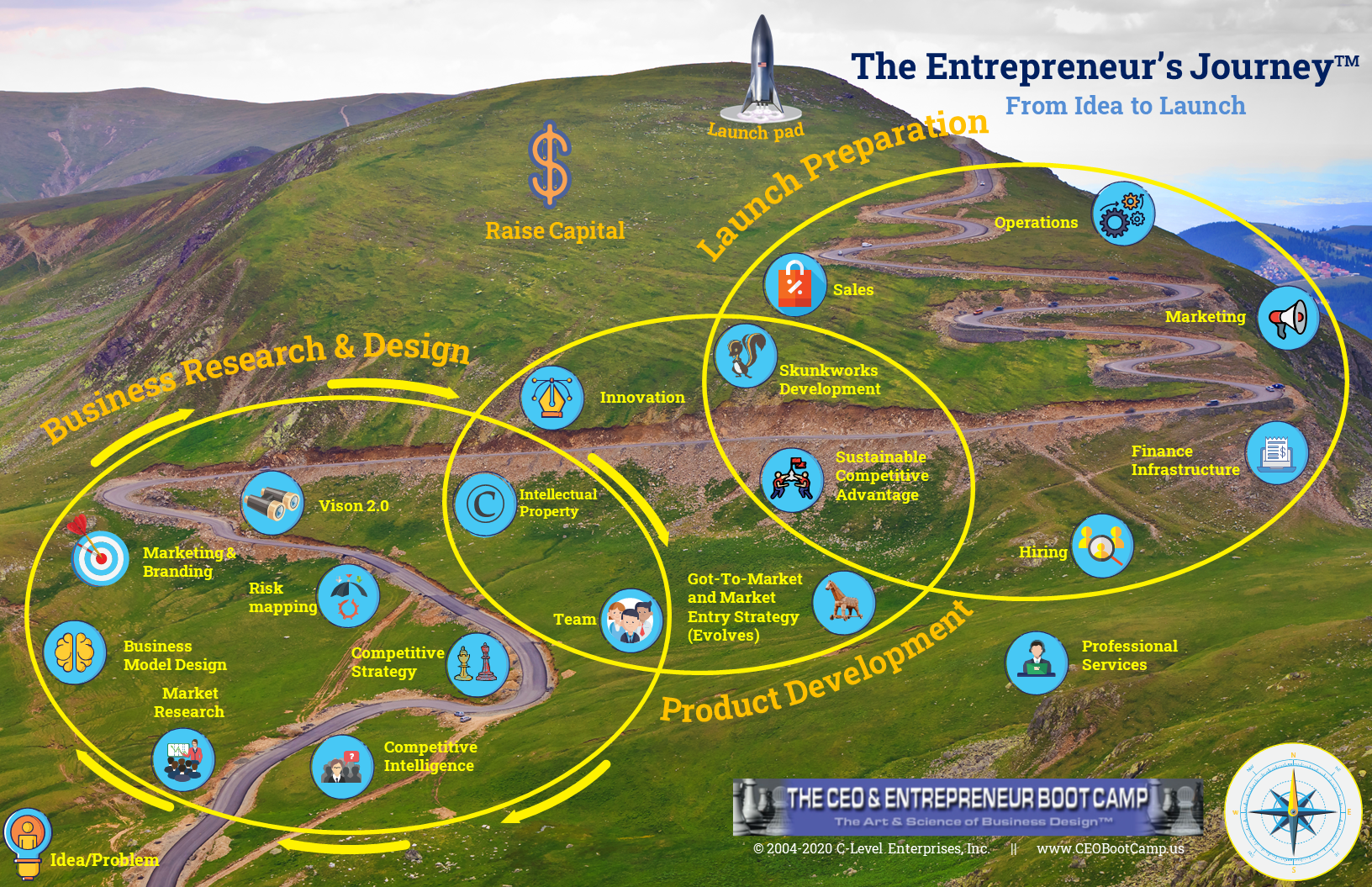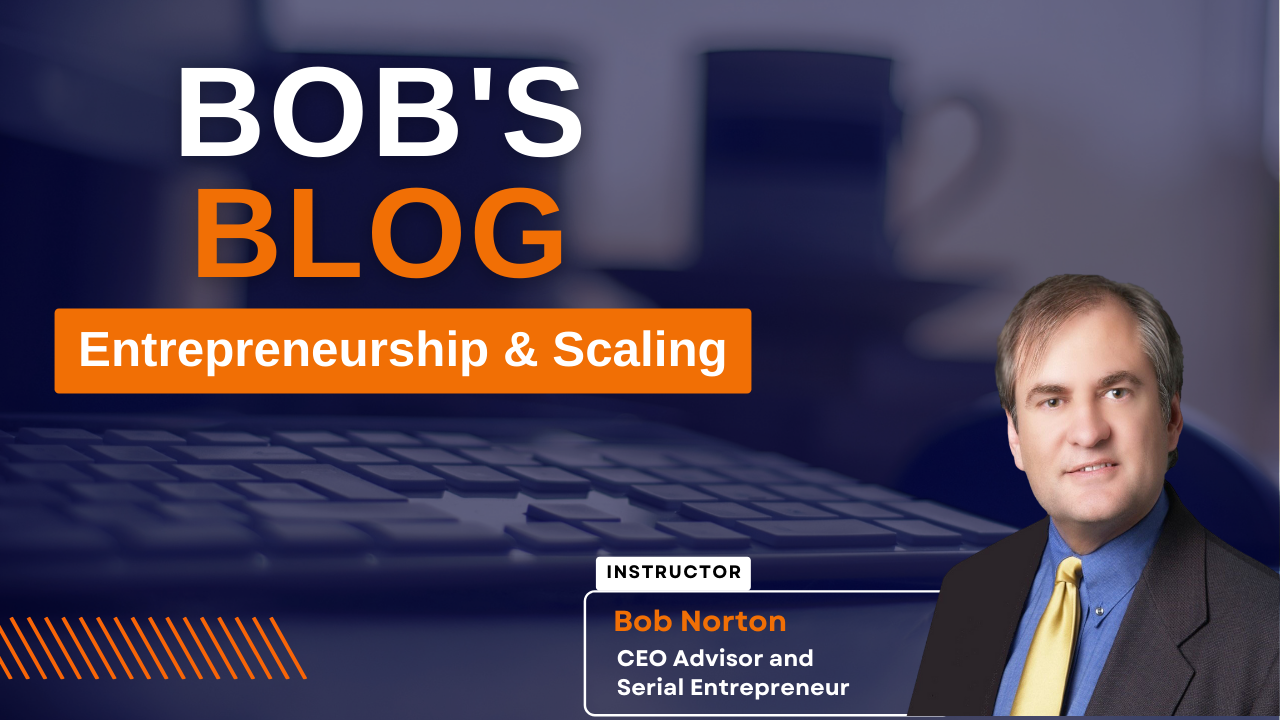What do the most successful businesses have in common?
Posted by Robert Norton on

This is a simple but good question, but does depend on what your definition of “successful” is, too. A lifestyle business is successful if it provides a decent living for the owner. Most freelancers, consultants and coaches are this kind of business. So are most local retail stores. They sell commodity products and services like millions of others.
To me, a successful business is one that can reach multi-millions in revenue, create jobs and has good margins for profit that can be reinvested to grow the business. This kind of business can grow exponentially and reach hundreds of millions in sales over time. These create true wealth and even generational wealth to leave to your children. And can have a big impact on the world too. What these businesses have in common, almost always, is:
- A differentiated product (or service) that provides high value to the customer compared to its cost.
-
Barriers to entry that prevent hundreds, or thousands, of others from duplicating the product easily. This can be intellectual property protections like patents, trade secrets, proprietary processes or locks on distribution or product sourcing. There are 17 types of these barriers we teach, and almost any company can use several.

Click here to learn more
- A committed founding team, usually 2–3 people with 10–15 years’ experience that makes them expert in the areas of product development, marketing and sales. And by committed, I mean they commit to stay 5 years as building a substantial company is a marathon, not a sprint. Fewer founders specialize in finance and operation because these are less creative and easy to hire, so not as core to the success.
- A culture of innovation. Peter Drucker, The Father of Management, said: “A company has two jobs: Innovation and marketing. Both require both creativity and critical thinking, too, which only a small percentage of the population possess. This may be the hardest to install and maintain as a company grows.
- Flexibility to listen to the marketplace and others, but know when to stick to their core ideas and when to pivot. Both decisions and modes of thinking are required. Best to love the problem you are solving, not the product.
- Persistence. Most successful companies and founders have 5+ years of “learning” (some call it failure) behind them. This may have been at other companies or a long-startup cycle. But pretty much every success you look at had many years of trial and error first.
 |
Learn more about our Growth and Scaling (GSP) |
|
For a free video consultation call on what your |
I have a free video course that goes into more detail on the skills a founding team needs to develop and attract to be successful and build a substantial company. The 85% failure rate is mainly because founders do not do the upfront work required, or lack the skills themselves and on the team.

Click here to visit Entrepreneur's Journey
Also check out my blog and follow me here on Quora as I have loads of posts on entrepreneurship, scaling and raising capital.

Click here to visit my Blog
We also offer The CEO Boot Camp that has graduated thousands of entrepreneurs and CEO from 40+ countries since 2004 for the most serious Entrepreneurs as an alternative to getting an MBA. Better in four ways. These courses contain highly practical roadmaps, models, and checklists, all curated over my two decades as a Serial Entrepreneur to create a holistic and comprehensive framework for entrepreneurial success. Taking my engineering experience and structured thinking and applying it to entrepreneurship.
May all your ventures be successful” by my definition above ‘0) It is just as easy to design and grow a large business as a small one with our 24 hours per day. This just takes more thought and critical thinking with good strategy.
Bob Norton is a long-time Serial Entrepreneur and CEO with four exits that returned over $1 billion to investors. He has trained, coached and advised over 1,000 CEOs since 2002. And is Founder of The CEO Boot Camp™ and Entrepreneurship University™. Mr. Norton works with companies to triple their chances of success in launching new companies and products. And helps established companies scale faster using the six AirTight Management™ systems. And helps companies successfully raise capital.
Call (619) SCALE06 or email info@AirTightMgt.com for a complementary strategic consultation
Share this post
- 0 comments
- Tags: Business Tips, Raw Startup


